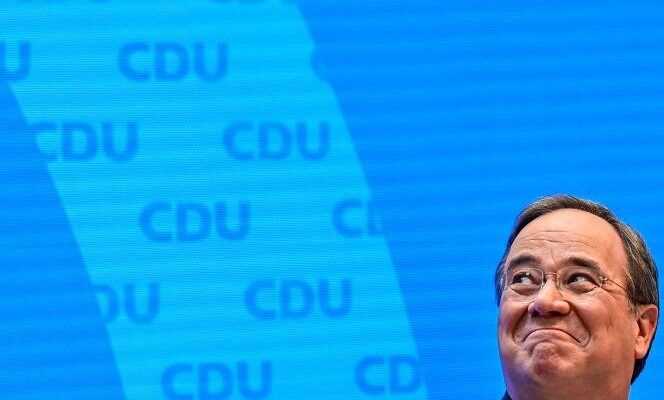Partisan logic won out over the poll pressure in Germany. Because he chairs the “big” Christian Democratic Union (CDU), present in fifteen of the sixteen Länder, Armin Laschet ended up winning against Markus Söder, the leader of the “small” Christian-Social Union (CSU). ), based in Bavaria alone, as a joint candidate of the two right-wing “sister parties” for the post of Federal Chancellor. Despite his unpopularity, it is therefore he who will seek the succession of Angela Merkel the day after the legislative elections of September 26.
After ten days of a dagger-drawn duel between the two rivals, it was the support of the CDU executive committee for the candidacy of Mr. Laschet, torn from a hard fight on the night of Monday 19 to Tuesday 20 April, which forced Mr. Söder to concede defeat. ” The die is cast. Armin Laschet is the Union candidate ” conservative, declared the latter, Tuesday noon from Munich, thus complying with an unwritten law which wants that between the CDU and the CSU, it is the first, because of its more important weight, which chooses their common candidate to the chancellery.
In seventy years, this is the third time that the two “sister parties” have struggled to agree on the name of their leader for the legislative elections. No rule being fixed in the statutes of the two formations, the procedure of designation was different each time.
In 1979, it was after a vote organized within the conservative group in the Bundestag that Franz-Josef Strauss (CSU) was invested against Ernst Albrecht (CDU). In 2002, it was during a breakfast that Angela Merkel (CDU) announced to Edmund Stoiber (CSU) that she was giving up her candidacy for the chancellery for lack of sufficient support from the barons of her party. , of which she had only been president for two years. In both cases, it was the Social Democratic candidate who won (Helmut Schmidt in 1980, Gerhard Schröder in 2002), which helped to establish the idea that a Bavarian would never be Federal Chancellor …
A very degraded image
From this point of view, Armin Laschet has more of the job profile. Rhenish and Catholic, like two former conservative chancellors – Konrad Adenauer (1949-1963) and Helmut Kohl (1982-1998) – he is even more in tune with the traditional electorate of the CDU than Angela Merkel, woman, Protestant, divorced, childless and raised in East Germany. But while that makes him a basically logical conservative candidate, it is not certain, however, that this is enough to secure him victory.
You have 60.76% of this article to read. The rest is for subscribers only.
